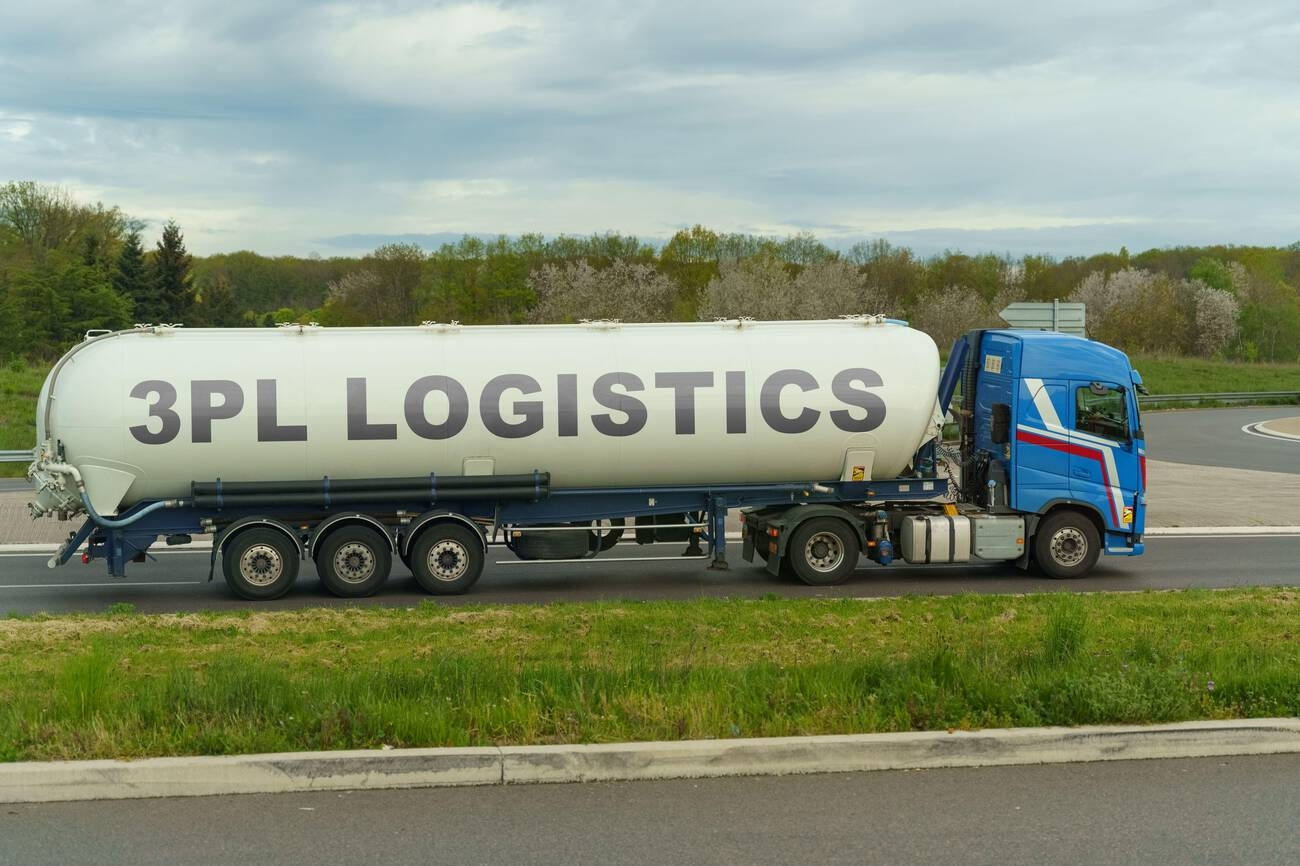Top 20 Third-Party Logistics Providers (3PL)
Efficient third-party logistics companies (3PLs) play a crucial role in global supply chains. They handle everything from transportation to warehousing, helping businesses streamline operations and reduce costs. With third-party logistics providers managing logistics, companies can focus on core business activities while ensuring smooth and timely deliveries.
Here’s a list of the top 20 third-party logistics companies shaping the industry today.
1. Maersk
A global powerhouse in shipping and international logistics services, Maersk offers comprehensive end-to-end supply chain solutions, including ocean freight, inland transportation, warehousing, and digital logistics platforms.
Their commitment to sustainability is evident through initiatives like carbon-neutral shipping and eco-friendly fuel alternatives. Maersk’s extensive global network and advanced technology integrations ensure reliable, efficient, and cost-effective logistics for businesses worldwide.
2. Kuehne + Nagel
One of the largest 3PL logistics companies, Kuehne + Nagel is a global leader in sea and air freight, contract logistics, and supply chain management. They provide end-to-end logistics solutions with a strong emphasis on digitalization and real-time tracking.
Their innovative platforms enhance shipment visibility, reduce transit times, and optimize logistics costs. With a vast network spanning over 100 countries, Kuehne + Nagel ensures seamless global supply chain operations for businesses of all sizes.
3. DHL Supply Chain
DHL’s third-party logistics company services include freight forwarding, warehousing, and customized supply chain solutions. They cater to industries such as healthcare, retail, and technology, offering tailored logistics solutions with a strong focus on automation and digitalization.
4. DB Schenker
With a strong focus on international logistics services, DB Schenker provides multimodal transport solutions, including rail, air, and ocean freight. They also offer supply chain consulting and digital tools to improve efficiency and cost-effectiveness in logistics operations.
5. FedEx Logistics
FedEx offers supply chain services, including freight forwarding, customs brokerage, and e-commerce logistics. Their extensive global network ensures seamless cross-border trade, while their expertise in express shipping makes them a preferred partner for time-sensitive deliveries.
6. Nippon Express
A major third-party logistics provider, Nippon Express delivers freight transportation, warehousing, and global logistics solutions. They specialize in heavy cargo, temperature-controlled logistics, and project-based logistics for industries such as automotive and electronics.
7. Expeditors
Expeditors provides transportation-related services, including freight forwarding, customs compliance, and supply chain optimization. Their strong emphasis on technology-driven solutions ensures real-time tracking and enhanced supply chain visibility for their clients.
8. UPS Supply Chain Solutions
A trusted third-party logistics company, UPS offers end-to-end logistics solutions, including warehousing, fulfillment, and global shipping. Their expertise in last-mile delivery and e-commerce logistics makes them a key player in the industry.
9. Geodis
Geodis specializes in contract logistics, freight forwarding, and transportation-related services. They offer end-to-end supply chain solutions, integrating warehousing, distribution, and last-mile delivery.
Their strong focus on digitalization and real-time tracking enables businesses to gain better visibility and control over shipments. By leveraging data-driven insights and AI-powered analytics, Geodis helps companies optimize routes, improve delivery times, and reduce logistics costs effectively.
10. Uber Freight
Uber Freight is transforming logistics with its tech-driven platform that connects carriers and shippers for seamless freight management. Their system offers real-time load matching, transparent pricing, and digital freight booking, reducing inefficiencies in the supply chain. With automated scheduling and data-driven insights, Uber Freight helps businesses optimize transportation costs while ensuring timely deliveries.
11. C.H. Robinson
A leading third-party logistics provider, C.H. Robinson provides freight brokerage, supply chain consulting, and digital logistics solutions. Their extensive carrier network and advanced analytics help businesses optimize their transportation strategies.
12. Ceva Logistics
Ceva provides international logistics services, offering end-to-end freight management, contract logistics, and tailored supply chain solutions. They serve industries such as healthcare, automotive, and consumer goods, with a focus on optimizing warehousing, distribution, and last-mile delivery. Their expertise in temperature-controlled logistics and specialized handling ensures safe and efficient transportation of sensitive goods.
13. ShipMonk
Focused on e-commerce fulfillment, ShipMonk provides warehouse services, inventory management, and order processing. They specialize in helping small and medium-sized businesses scale efficiently through automated fulfillment solutions.
14. XPO Logistics
XPO specializes in warehouse services, contract logistics, and transportation management for enterprises. Their expertise in automation and robotics enhances warehouse operations, reducing costs and improving efficiency.
15. Bolloré Logistics (SDV)
Bolloré provides international logistics services, with expertise in aerospace, healthcare, and supply chain management. Their strong presence in emerging markets makes them a reliable partner for global trade.
16. Arrive Logistics
Arrive Logistics offers transportation-related services, focusing on freight brokerage and carrier optimization. They use AI-driven insights to streamline freight operations and enhance supply chain efficiency.
17. Total Quality Logistics (TQL)
TQL is a major freight brokerage firm providing transportation-related services, real-time tracking, and 24/7 customer support. Their digital platform connects shippers with carriers for seamless logistics execution.
18. Shiprocket
A growing third-party logistics company, Shiprocket specializes in e-commerce logistics, order fulfillment, and last-mile delivery solutions. They integrate with multiple marketplaces, offering businesses seamless shipping options.
19. Allcargo Logistics
Allcargo is a global third-party logistics provider specializing in multimodal transport, contract logistics, and warehousing. They offer integrated supply chain solutions, leveraging digital tools for real-time shipment tracking and efficiency improvements.
20. FM Logistic
FM Logistic provides international logistics services, including warehousing, distribution, and transportation management. Their expertise in handling FMCG, retail, and pharmaceutical logistics makes them a trusted partner for businesses worldwide.
Final Words
The logistics industry is evolving rapidly, and choosing the right third-party logistics provider can give businesses a competitive edge. Whether it’s leveraging cutting-edge technology, optimizing supply chains, or ensuring efficient freight movement, these top 3PL companies help businesses scale effectively.
By partnering with a reliable logistics service provider, companies can focus on growth while ensuring smooth and cost-effective operations. You can also track your courier or container live with the help of GoComet, ensuring real-time visibility and better supply chain management.




![Trump’s Second-Term Tariff Impact: The 2018 Deja Vu [UPDATED] 5 Trump’s Second-Term Tariff Impact: The 2018 Deja Vu [UPDATED]](https://www.gocomet.com/blog/wp-content/uploads/2024/11/Trumps-Second-Term-The-2018-Deja-Vu-1-768x384.webp)